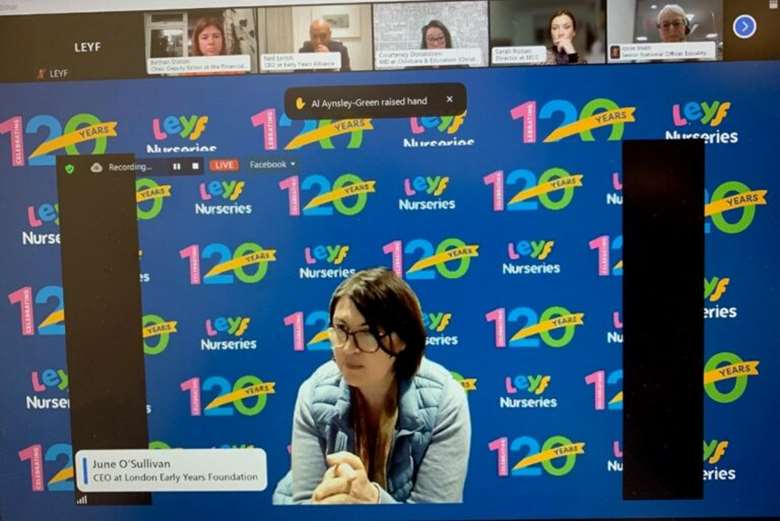If children really are our future, why are we stalling?
June O'Sullivan
Monday, December 11, 2023
November 16 marked Social Enterprise Day, so Happy Social Enterprise to you all. My dream is for every business to operate like a social enterprise and never have to explain it to anyone again!

That said, I set up the Margaret Horn Debate on Social Enterprise Day seventeen years ago. It was a celebration of the original Director of the small local charity from which I developed LEYF. It was about giving ordinary women who do extraordinary things a voice.
Over the years, it has offered a chance to debate and discuss the many significant and political issues that are highlighted when you work with small children.
Last week the panel discussed the complex implications of the Government’s planned expansion of childcare due to be rolled out in April 2024 which was chaired ably by the FT’s work and careers deputy editor, Bethan Staton.
It made me reflect on how far we have come. In 1997, we had the first 10-year Early Years National Strategy that kicked off a national discussion about the benefits of Early Years to small children. It led to us properly research Early Years quality, learning and its impact on big issues such as poverty and economic infrastructure. Practice was shaped by the findings from EPPE plus we also got the EYFS and SureStart on board. Deeper analysis was conducted here in the UK and across the world about the impact of Early Years Education and Care on small children.
It ran out of steam in 2007 when a series of governments failed to continue the investment and instead titivated around the edge, sometimes to repair the bad policy they made but the emphasis was on doing EYEC on the cheap. We had 21 childcare ministers with an average stay of 12 months, so there was no voice in government for us. The marketplace shaped growth so poor children lost out and we were sidelined. We became the Cinderella of education, forced into leading continual campaigns to raise the importance of funding the sector to survive.
Now we are front and centre of public policy. The Government announced its expansion plan to double the available hours to children. Interestingly,42% of parents say what the Government will do will impact their voting in the forthcoming election. The Princess of Wales is also leading her campaign to shape up our understanding of ECEC which gives us another window of opportunity.
Unsurprisingly, this year’s Margaret Horn discussion explored how we might build a coalition to manage this expansion without drowning in a sea of debt, staff shortages, poor quality pedagogy and a public misunderstanding about what we do. We also need to think about the role children play in our future. Many of you will have heard me talk about who will be there for us when we are living long and unhealthy lives. Who will pay the taxes, provide the care and keep the future going?
With this in mind, here are the top questions to discuss with your teams, students, apprentices and parents. We need to be on top of this, and we can only do it with a shared coherent voice.
One voice, one message:
Early Years Matters
June O’Sullivan is chief executive of the London Early Years Foundation (LEYF). Read the full version of this blog on the LEYF website.




